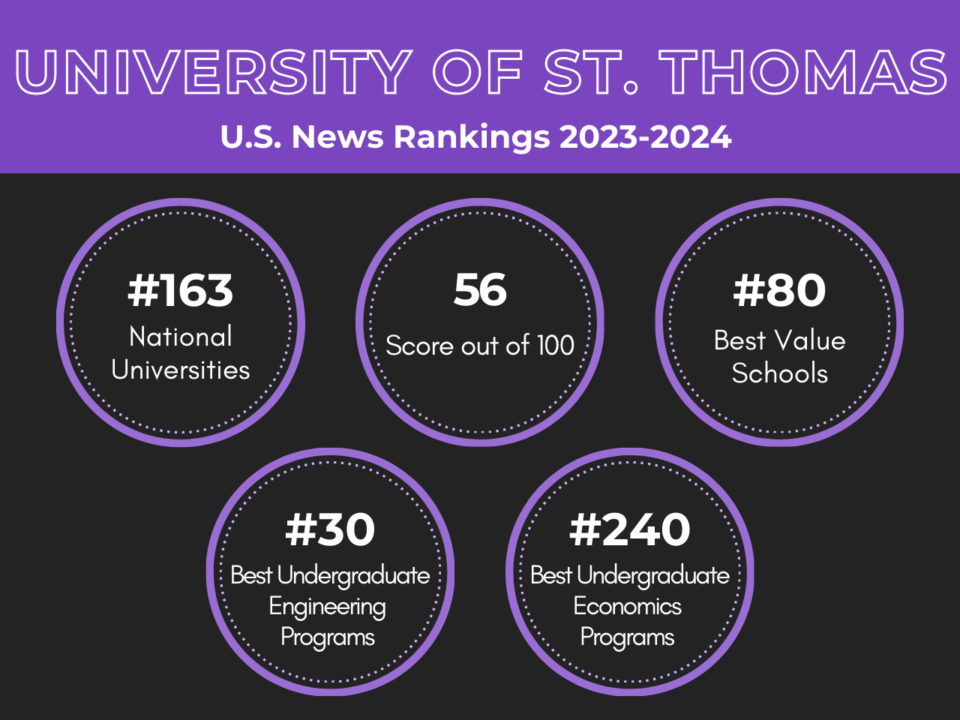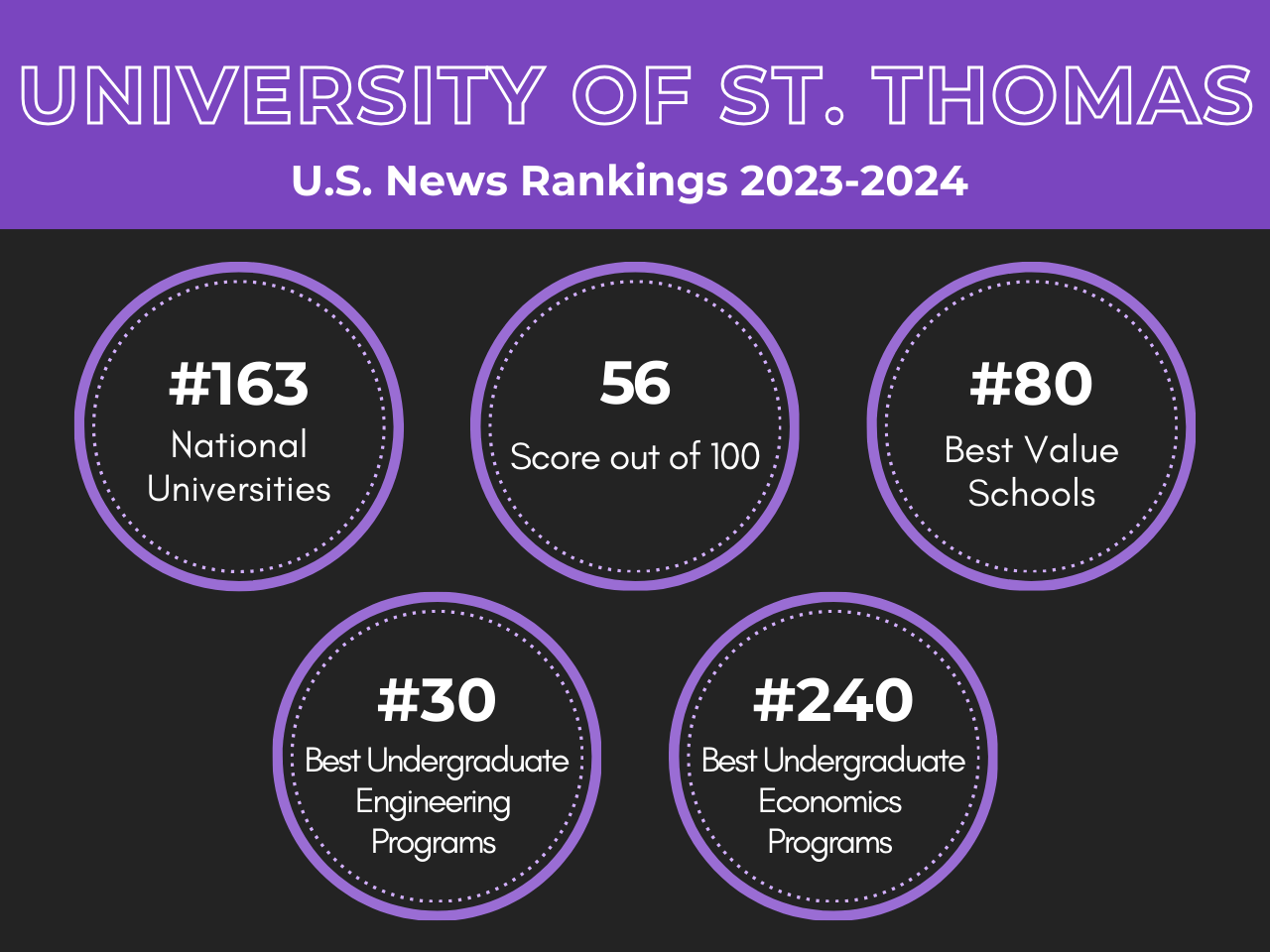
U.S. News & World Report released its annual rankings of colleges and universities in the United States on Sept. 18. St. Thomas tied for No. 163 in this year’s rankings and received an overall score of 56 out of 100. Over 1,500 U.S. four-year bachelor’s degree-granting institutions were evaluated. However, St. Thomas officials, as well as others across the country, have begun to question the rankings’ importance.
This iteration of the rankings was tabulated according to an updated methodology that the organization announced with the intention of better representing the changing needs of students, specifically lower-income and first-generation college students.
Nineteen different categories are judged to determine overall rankings, with the three highest-weighted factors for schools with usable SAT or ACT scores being peer assessment (weighted 20%), graduation rates (16%) and graduation rate performance (10%).
St. Thomas’ other notable placements included No. 80 in the best value category and No. 30 for best undergraduate engineering programs at schools where a doctorate is not offered. University officials have been increasingly skeptical of these rankings, however.
“For example, this year US News stopped putting any weight on class size – meaning that, for purposes of the rankings, it doesn’t matter if you’re in an active, engaged classroom with 19 students or sitting passively in a large auditorium with 500 students,” St. Thomas President Robert Vischer wrote in an email to TommieMedia. “That just doesn’t align with what we think is important for the educational experience of our students.”
The rankings have faced recent scrutiny, especially after Columbia University’s knowing use of misleading data saw its ranking lowered from No. 2 to No. 18 in last year’s U.S. News ranking of national universities. In the time since last year’s rankings, multiple law and medical schools – including the law schools of Harvard and Yale – announced their decision to stop submitting data to the organization, citing concerns about the system’s methodology.
But the concept of postsecondary rankings has come under fire before. In an August 2022 press conference, Secretary of Education Miguel Cardona expressed disapproval with the way that rankings cause many colleges to chase high rankings in order to simply “xerox privilege,” calling rankings that prioritize prestige over affordability or education “a joke.”
St. Thomas’ Chief Communications Officer Andy Ybarra acknowledged that these rankings can be a “helpful tool” for surface-level comparison between schools, though he believes that the present needs of students and faculty should be prioritized over the criteria of organizations like U.S. News.
“We see a need for things, and we try to act on them, and in telling the story of why we act on them, we not only bring attention to the fact that those sorts of things exist, but we explain what the need is behind them,” Ybarra said. “When you tell the story of the university, people are going to come to their own conclusions.”
Ybarra gave the example of the currently under-construction Schoenecker Center, which he said was built to give students in the science, technical and arts majors a more workforce-ready experience. While an outsider might see it as a potential draw, Ybarra sees it as the university doing its job.
“If anybody goes out there and talks about whole person education, it’s going to fall flat if you don’t have the supports to actually make that a reality,” Ybarra said. “When you look at the past 25-plus years, we wouldn’t be seeing the success we have been if that wasn’t an actual thing.”
Ybarra also cites the St. Thomas 2025 plan, announced in 2021, which details mission-based goals that act in concert with the university’s financial aspirations, as another example of how the university’s long-term plans go beyond the criteria of rankings.
“Student needs are our top business priority, and we know that students need to have a strong economic return on their investment in St. Thomas,” Vischer wrote. “… If we can help make that happen for every student who sets foot on our campus, the business of St. Thomas will be strong and healthy for generations to come.”
Kevin Lynch can be reached at lync1832@stthomas.edu.
Rasamy Lee contributed to this report.

